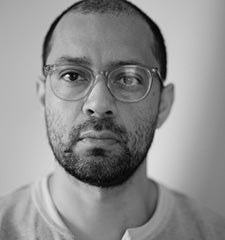For more information:
Email UsLearning Objectives
- Describe principles and strategies for providing and receiving feedback in team settings.
- Recognize how effective and thoughtful feedback is essential for developing a productive culture of team science.
- Develop skills and confidence for engaging in feedback conversations and other difficult conversations.
Feedback is essential for supporting cross-disciplinary efforts and the collaborative process, nurturing team effectiveness and creativity, and advancing scientific inquiry and research. This one-hour webinar will explore foundational elements of feedback, its promises and challenges, frameworks for engaging in this complex yet generative process of communication in team settings, and how “team psychological safety” is foundational for engaging in constructive feedback experiences. Participants will build skills and confidence, gaining a practical understanding of how feedback processes can build more functional and sustainable scientific research teams to achieve desired outcomes.
An additional webinar on collaboration agreements will follow this session on feedback. Both sessions are part of the series on Boundary-Crossing Skills for Research Careers.
Session dates
August 14, 2024 | 12:00 – 1:00pm EDT
Meet the Presenter
 Edgar Cardenas, PhD, is co-founder and associate director of the ToolBox Dialogue Initiative Center (TDIC) at Michigan State University. His work focuses on structured dialogue, social creativity, and small group dynamics. Cardenas has worked with multiple universities and federal organizations, including the National Science Foundation (NSF), National Aeronautics and Space Administration (NASA), National Oceanic and Atmospheric Administration, Department of Energy, and Department Of Defense. He is a team science curriculum lead for the NSF Convergence Accelerator program and has been working with them since its inception in 2019. Under the Convergence Accelerator, he has worked with more than 200 teams composed of scientists, humanists, and private industry partners, focused on scaling solutions for complex societal problems. In addition to his work at TDIC, he is an executive producer for the podcast, Living Dialogs, which focuses on open-ended conversations about living architecture with practitioners, scholars, and researchers in the field. He holds a PhD in sustainability and a MA in industrial/organizational psychology.
Edgar Cardenas, PhD, is co-founder and associate director of the ToolBox Dialogue Initiative Center (TDIC) at Michigan State University. His work focuses on structured dialogue, social creativity, and small group dynamics. Cardenas has worked with multiple universities and federal organizations, including the National Science Foundation (NSF), National Aeronautics and Space Administration (NASA), National Oceanic and Atmospheric Administration, Department of Energy, and Department Of Defense. He is a team science curriculum lead for the NSF Convergence Accelerator program and has been working with them since its inception in 2019. Under the Convergence Accelerator, he has worked with more than 200 teams composed of scientists, humanists, and private industry partners, focused on scaling solutions for complex societal problems. In addition to his work at TDIC, he is an executive producer for the podcast, Living Dialogs, which focuses on open-ended conversations about living architecture with practitioners, scholars, and researchers in the field. He holds a PhD in sustainability and a MA in industrial/organizational psychology.
Register
The application process is closed. Please check back for future opportunities.

